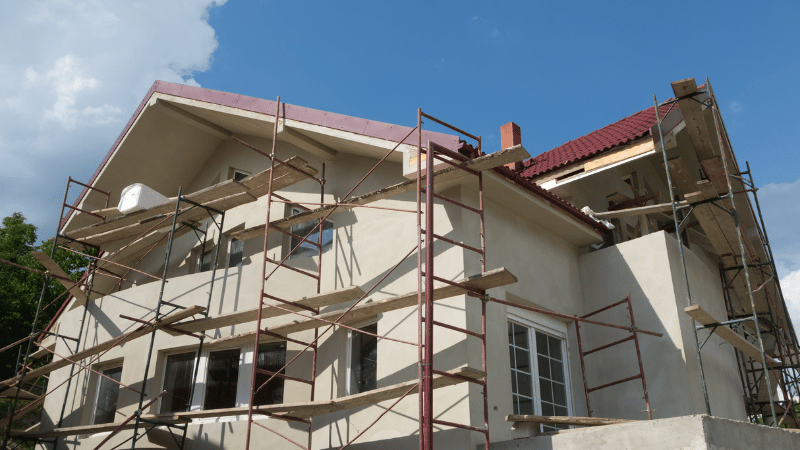Categories
How Fast Can I Get a Bridging Loan

When the property market is strong, cash buyers are typically in pole position to acquire in-demand property. So either you have cash in the bank account ready to go, or must demonstrate that you can arrange finance quickly.
The challenge with depending on traditional mortgage finance when buying a property is that it can take time to arrange. So you may need to consider short term borrowing to give you cash buyer status in the meantime.
A bridging loan can make the difference between securing a house you have set your heart on or losing it to another buyer.
Here, we explain how a bridge loan can help you buy a property, how quickly you could get one, and how to apply for one.
How long does it take to arrange a standard mortgage?
The standard mortgage approval process should take "between 18 to 40 days", but in reality, it can take far longer than this.
The time taken to complete a mortgage from start to finish will depend on several factors.
Processing proof of identity, proof of income, salary slips, credit checks and employers’ references, the valuation of the property, and the various legal checks required by the lender's legal team and your solicitor, can make for a time-consuming process.
And any failure to present the right supporting documentation in the correct format can add days or weeks to the process.
What is a bridging loan?
A bridging loan is a type of fast, short term secured borrowing that allows property buyers to move quickly when needed.
They’re "secured" for the lender, usually against the value of a property - either a property already owned or the property being purchased. Or sometimes, a "charge" is taken out against both properties to help you achieve the loan-to-value (LTV) ratio you need to minimise the cost of your borrowing.
That’s why they’re faster to set up than long-term mortgage finance.
It’s much quicker to establish the value of a bricks-and-mortar asset than to verify employment status, income and affordability, and credit ratings.
How much can I borrow, and for how long?
Bridging loans solve problems for buyers because they offer:
- Loans from £25,000 upwards
- Up to 70% of the value of the property (sometimes more, on investment properties or in particular circumstances)
- Flexible loan terms, from as short as one month or up to a year for a home loan (which may be extended)
- Or up to 3 years on commercial/investment properties
Although bridging loans generally have higher interest rates than longer-term mortgages, they can be used more flexibly.
You can get a bridging loan for a property that is:
- For residential or commercial use
- Considered "unmortgageable"
- Only going to be owned for a short period
And there’s help with managing the cost of bridging loans:
- Interest can be "rolled up" and paid at the end of the loan term to avoid additional monthly payments
- Low arrangement fees are usually around 2% of the total capital borrowed.
See our guide to bridging loan costs >>
How long does it take to get a bridge loan?
This will depend on what you’re trying to do. Buying a residential property for your use is a "regulated" transaction. The typical completion time of a regulated bridging loan can range from 4 to 6 weeks.
If the property purchase is for investment purposes, then completion can be much quicker than this. In some circumstances, it can be as short as 5 working days; however, to meet this kind of timescale, expect to pay more in fees as a lender, and the solicitors involved will need to make your case a priority. It will also depend on the situation. A good advisor will know which lenders will be able to respond quickly to your circumstances.
When is a bridging loan a good idea?
1. Trading up before a sale has completed
You’ve found the perfect new home that suits you: bigger, for a growing family / in the right location, for a shorter commute / with a bigger garden, or on the right side of the street…
But the sale on your current house isn’t yet signed and sealed.
For many people hoping to buy the home they will live in for many years, paying a bit more for short-term finance to secure the right property is well worth it.
(The experience of missing out on "the perfect place" is all too common, followed by more months of house-hunting before settling on a property that’s more expensive, or needs the kitchen or bathroom to be updated. Which costs the same as bridging finance might have done…)

2. Downsizing
If the kids have moved out and you’re rattling around in a house that’s bigger than you need or with more garden space than you can cope with, you may want to "downsize" or "rightsize" to a more convenient location or nearer to family.
The "perfect" home right next door to relatives doesn’t come up often: you need to be able to purchase quickly – perhaps even before you’ve put your current house on the market.
And you might need to do some updating on your current home to ensure it finds its best price.
Or the home you’re hoping to buy needs substantial redecorating / renovations, and you don’t want to live amongst paint tins and builders’ buckets.
A bridging loan can allow you to make an easy one-move transition, avoiding the need for temporary rented accommodation and the expense of two removals and temporary storage.
3. Buying an "uninhabitable property."
Even a million pounds (in London) may not buy you a house that you can get a mortgage on – if it doesn’t have a working kitchen and bathroom (usually electricity and central heating).
This is where bridging finance comes in: to cover the gap (which may be as short as a month or two) between buying and getting the necessary remedial works done so you can onto a standard long-term mortgage.

4. Buying a property at auction
Some of the most interesting and unusual homes are sold at auction, and some absolute-bargain repossessed properties.
Property auctions used to be considered the preserve of bold developers willing to take a punt with a suitcase of their own cash. But well-organised homeowners and would-be landlords can still get involved – if they know in advance how to get their finance.
The four-week gap between the catalogue publication and the auction date is enough time for a nimble solicitor to do the property searches and for you to get the property surveyed – or at least to visit a knowledgeable builder.
But the gap between hammer-fall and payment deadline (usually between 14 days and six weeks later) is not long enough to set up mortgage finance. Plus (as above), many auction properties don’t meet the "habitable" criteria of a mortgageable property.
5. Extending the lease term on a leasehold property
A few leasehold property owners find themselves trapped sitting on an asset with declining value.
Many properties (including flats in London) are sold leasehold rather than freehold. But as soon as the remaining period on the lease approaches 80 years or less, the property begins to lose value significantly.
Reduced value of shorter leaseholds
- A flat with a 99-year lease will have 99-100% of the value of the same flat owned freehold.
- With a 70-year lease, the value of the flat is around 91-92%
- With a 50-year lease, the value of the flat is around 75%
A bridging loan can enable you to buy an extension to the lease, taking into account the “marriage value” increase in value of the property – which will be shared by the landlord granting the new lease (which they’re obliged to do) and the leaseholder.
The increased value enables remortgaging, which repays the bridge finance.
How can I get a bridging loan?
Get expert advice on setting up short-term bridging finance quickly
There’s no shortcut to detailed market knowledge and a solid understanding of how the structure of bridging finance can suit individual circumstances.
At Clifton Private Finance, our team of expert bridging loan brokers is on hand to discuss your situation and help you decide if a bridging loan is a right solution for you.
Book a free and no obligation telephone consultation at a convenient time for you:
Or call us now to talk to one of our expert bridging loan advisors now: 0117 959 5094











